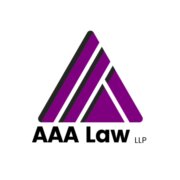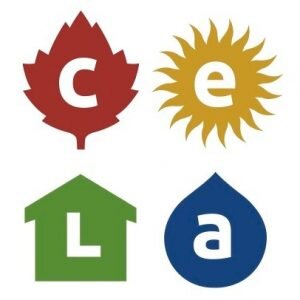Best State, Local, and Municipal Law Lawyers in Canada
Share your needs with us, get contacted by law firms.
Free. Takes 2 min.
Or refine your search by selecting a city:
List of the best lawyers in Canada
About State, Local, and Municipal Law in Canada
State, Local, and Municipal Law in Canada covers the regulations and legal frameworks that govern the operations of provinces, territories, and municipalities. This field of law addresses a wide range of issues, including land use and zoning, municipal governance, local by-laws, property taxes, and public health regulations. Local governments in Canada are granted authority through legislation enacted by provincial governments, allowing them to establish their own by-laws and regulations within their jurisdiction.
Why You May Need a Lawyer
There are several scenarios in which individuals or businesses may require legal assistance in matters related to State, Local, and Municipal Law:
- Zoning and Land Use: When seeking to develop or alter property, navigating zoning laws and land use restrictions is essential. Legal advice ensures compliance with local regulations.
- By-law Disputes: Conflicts often arise from disagreements over compliance with municipal by-laws, such as noise restrictions, building codes, or waste management.
- Property Taxes: Legal guidance may be needed to address disputes or appeals related to property tax assessments.
- Municipal Contracts: Businesses entering into contracts with local governments for services or development projects require legal expertise to negotiate terms and ensure compliance.
- Public Health and Safety: Legal advisors can help understand the implications of local public health regulations, especially relevant during public health emergencies.
Local Laws Overview
Local laws in Canada are primarily established through municipal by-laws, which operate under the authority granted by provincial statutes. Key aspects of these laws include:
- Zoning: Zoning regulations divide a municipality into zones, dictating the permissible uses of land and buildings in each zone to guide development and land use.
- Building Codes: These regulations ensure the safety and structural integrity of buildings, including standards for construction, renovation, and occupancy.
- Public Spaces and Environment: Local laws manage the use of public spaces, protect the environment, and establish waste management protocols.
- Licensing and Business Regulation: Municipalities may require businesses to obtain specific licenses and comply with regulations pertinent to business operations within the area.
- Public Health: By-laws related to public health often cover issues such as noise control, water quality, and pest control to maintain community well-being.
Frequently Asked Questions
What is the role of municipal governments in Canada?
Municipal governments manage local matters such as land use, community services, infrastructure maintenance, and local by-laws. They operate under the authority of provincial legislation.
How can I challenge a zoning decision by my municipality?
Challenging a zoning decision typically involves submitting an appeal to a local planning board or tribunal. Legal advice can guide you through the appeal process and improve your chances of success.
What should I do if I receive a notice for a by-law violation?
If you receive a notice for a by-law violation, review the details, and consider consulting with a legal expert to understand your rights and obligations, as well as potential remedies.
How are property tax disputes handled in Canada?
Property tax disputes often involve filing a complaint or appeal with the local assessment board. Legal representation can help ensure a fair review of your case.
Can a municipality enforce by-laws on private property?
Yes, municipalities can enforce by-laws on private property to address issues like safety violations, noise complaints, and environmental regulations.
What is the process for obtaining a municipal business license?
Typically, you must submit an application to the local government outlining your business operations, and comply with necessary inspections and fee requirements.
Who is responsible for maintaining public roads and infrastructure?
Municipal governments are generally responsible for the maintenance of local roads and infrastructure, while provincial governments may handle regional transportation networks.
How do local laws affect real estate development?
Local laws like zoning and land use regulations determine where and how properties can be developed, influencing the feasibility and design of real estate projects.
What are the penalties for not complying with municipal regulations?
Penalties may include fines, orders to cease operations or activities, and, in serious cases, legal action. Severity depends on the nature and impact of the non-compliance.
How can residents participate in the development of local laws?
Residents can participate by attending municipal meetings, submitting comments on proposals, and engaging in public consultations during the by-law development process.
Additional Resources
Here are some resources and organizations that can provide further assistance with State, Local, and Municipal Law issues in Canada:
- Federation of Canadian Municipalities (FCM): An advocacy group representing municipal interests at the federal level.
- Provincial Ministries of Municipal Affairs: Each province has a department or ministry responsible for overseeing local governance.
- Local Government Websites: Most municipalities offer online portals with information on by-laws, council meetings, and local services.
- Legal Aid Clinics: Offer legal advice and assistance for qualifying individuals dealing with municipal law issues.
Next Steps
If you require legal assistance related to State, Local, and Municipal Law, consider the following steps:
- Identify Your Issue: Clearly outline the legal issue you are facing and gather relevant documents.
- Consult with a Lawyer: Seek advice from a lawyer experienced in municipal law. They can provide guidance specific to your situation.
- Explore Legal Aid Options: If cost is a barrier, research available legal aid services that may offer support.
- Engage with Local Government: Contact your local government offices for clarification and resources related to your issue.
Lawzana helps you find the best lawyers and law firms in Canada through a curated and pre-screened list of qualified legal professionals. Our platform offers rankings and detailed profiles of attorneys and law firms, allowing you to compare based on practice areas, including State, Local, and Municipal Law, experience, and client feedback.
Each profile includes a description of the firm's areas of practice, client reviews, team members and partners, year of establishment, spoken languages, office locations, contact information, social media presence, and any published articles or resources. Most firms on our platform speak English and are experienced in both local and international legal matters.
Get a quote from top-rated law firms in Canada — quickly, securely, and without unnecessary hassle.
Disclaimer:
The information provided on this page is for general informational purposes only and does not constitute legal advice. While we strive to ensure the accuracy and relevance of the content, legal information may change over time, and interpretations of the law can vary. You should always consult with a qualified legal professional for advice specific to your situation.
We disclaim all liability for actions taken or not taken based on the content of this page. If you believe any information is incorrect or outdated, please contact us, and we will review and update it where appropriate.
Browse state, local, and municipal law law firms by city in Canada
Refine your search by selecting a city.
















